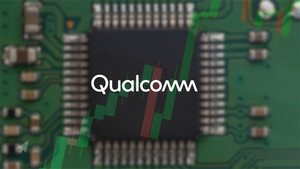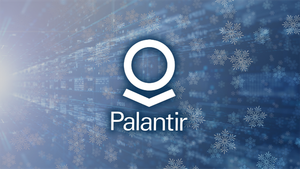
MENLO PARK, CA – October 1, 2025 – Meta Platforms (NASDAQ: META) is dramatically intensifying its pursuit of artificial intelligence leadership, making waves across the tech and financial sectors with a multi-pronged strategy. Today, the company confirmed its acquisition of the RISC-V chip startup Rivos, a strategic move aimed at bolstering its in-house semiconductor design capabilities and reducing reliance on external chip manufacturers. Simultaneously, Meta is poised to revolutionize its advertising ecosystem by leveraging interactions within its burgeoning AI chat features for hyper-targeted ad delivery, a pivot that promises unprecedented personalization but also raises significant privacy considerations.
These bold initiatives underscore Meta's ambition to embed AI at the core of its operations, from foundational infrastructure to its lucrative advertising business. The Rivos acquisition signifies a crucial step towards greater vertical integration in hardware, while the integration of AI chat data into ad targeting represents a significant evolution in its monetization strategy, promising to redefine how businesses reach consumers across its vast social media empire.
Meta's AI Gambit: From Silicon to Personalized Conversations
Meta's aggressive AI strategy is backed by colossal investments, with projected capital expenditures for 2025 estimated between $66 billion and $72 billion, largely dedicated to building advanced data centers and acquiring sophisticated AI chips. The company has pledged over $600 billion in AI-related investments over the next three years, signaling a long-term commitment to leading the AI race. This comprehensive strategy encompasses AI-powered advertising tools, enhanced user personalization, business messaging integration, the development of personal AI assistants like Meta AI, and AI-integrated devices such as Ray-Ban smart glasses.
The acquisition of Rivos, publicly confirmed on October 1, 2025, is a cornerstone of this infrastructure push. Rivos, founded in 2021, specializes in designing AI inferencing chips based on the open-standard RISC-V architecture and brings expertise in building full-stack AI systems. This move is a clear attempt by Meta to gain greater control over the performance, customization, and cost of its AI infrastructure, following reports that its existing in-house chip development under the Meta Training and Inference Accelerator (MTIA) program had not met CEO Mark Zuckerberg's expectations. By integrating Rivos's talent and technology, Meta aims to accelerate its ability to design custom chips optimized for its specific AI workloads, reducing its dependence on external suppliers like NVIDIA (NASDAQ: NVDA).
In parallel, Meta is set to implement a significant shift in its advertising strategy, leveraging data from user interactions with its AI products, including its popular chatbots, to personalize content and advertisements across platforms such as Facebook (NASDAQ: META) and Instagram (NASDAQ: META). Notifications regarding an updated privacy policy, effective December 16, 2025, are set to begin on October 7, 2025. This data collection will encompass text and voice interactions with Meta AI, and potentially extend to information from AI-powered devices like Ray-Ban smart glasses and other AI tools such as its image generator "Imagine" and video feed "Vibes." Meta views these AI interactions as "another signal" to enhance personalization, ultimately driving higher conversion rates for advertisers. The company has stated that sensitive conversational topics will not be used for ad targeting, and this hyper-targeting feature will not be implemented in regions with stringent privacy regulations, including the UK, the European Union, and South Korea. For users in other regions, there will be no direct opt-out option for this specific data usage, meaning cessation of interaction with Meta's AI products is the only way to avoid AI-chat-based targeted ads. With Meta AI boasting over one billion monthly active users, this represents a monumental evolution in Meta's advertising capabilities.
Market Movers: Winners and Losers in Meta's AI Revolution
Meta's aggressive AI strategy is poised to create significant ripples, impacting various players across the technology and advertising landscapes. The most immediate and apparent "loser" in the short term could be external semiconductor giants, particularly NVIDIA (NASDAQ: NVDA), which has long been a dominant supplier of GPUs crucial for AI training and inference. By acquiring Rivos and accelerating its in-house chip design, Meta aims to reduce its reliance on NVIDIA's hardware, potentially impacting NVIDIA's future revenue streams from one of its largest customers. While NVIDIA's market position is robust, a successful internal chip program at Meta could signal a broader trend among hyperscalers to develop custom silicon, posing a long-term challenge to traditional chip manufacturers. Other chip designers like Advanced Micro Devices (NASDAQ: AMD) could also face increased competition as Meta's custom silicon potentially displaces their offerings for Meta's specific workloads.
Conversely, the "winners" could include companies that specialize in RISC-V architecture development or open-source hardware, as Meta's embrace of Rivos validates the potential of this ecosystem. Furthermore, businesses that can effectively leverage Meta's new hyper-targeting capabilities stand to gain significantly. Small and medium-sized businesses (SMBs) and large advertisers alike could see improved return on investment (ROI) from their ad campaigns on Meta's platforms, as AI-driven personalization leads to more relevant ad placements and higher conversion rates. This could also benefit ad-tech companies that specialize in optimizing campaigns for Meta's platforms, provided they can adapt to and integrate with the new AI-driven targeting mechanisms.
The impact on other social media platforms and ad networks is also noteworthy. If Meta successfully demonstrates a significant uplift in ad effectiveness through AI chat data, competitors like Alphabet's Google (NASDAQ: GOOGL) and Snap (NYSE: SNAP) will face pressure to innovate their own AI-driven advertising solutions. This could trigger an arms race in AI-powered ad tech, pushing the boundaries of personalization across the digital advertising industry. However, companies that fail to keep pace with Meta's advancements in AI-driven personalization may find themselves at a disadvantage in attracting advertising spend.
Broader Significance: The AI-Driven Future of Tech and Advertising
Meta's strategic moves fit squarely into broader industry trends emphasizing vertical integration, the democratization of AI, and the ever-increasing demand for personalized digital experiences. The push for in-house chip design mirrors similar efforts by tech giants like Alphabet (NASDAQ: GOOGL) with its Tensor Processing Units (TPUs) and Apple (NASDAQ: AAPL) with its M-series chips, all aiming for greater control over hardware-software integration, performance optimization, and cost efficiency. This trend signifies a maturing of the AI industry, where companies are no longer just consuming off-the-shelf components but are actively shaping the underlying silicon to meet their unique AI demands. It also highlights a growing recognition that proprietary hardware can be a significant competitive differentiator in the AI era.
The decision to use AI chat interactions for hyper-targeting advertisements carries profound implications for data privacy, regulatory oversight, and the future of digital marketing. While Meta has outlined specific privacy safeguards, such as excluding sensitive topics and certain regulated regions, the expansion of data collection from conversational AI raises questions about user consent and the potential for increasingly granular profiling. This could invite further scrutiny from privacy advocates and regulatory bodies, potentially leading to new policy discussions or enforcement actions, particularly in regions beyond the EU and UK that may consider similar protections. Historically, major shifts in data collection and advertising practices have often led to regulatory backlashes, and Meta's move could be a catalyst for renewed debates on data governance in the age of advanced AI.
Moreover, this strategy sets a new precedent for how conversational AI can be monetized. As AI assistants become more ubiquitous and sophisticated, the data generated from these interactions becomes an invaluable resource for understanding user intent and preferences. Meta's approach could inspire other companies developing AI chatbots and virtual assistants to explore similar advertising models, transforming these tools from mere utility providers into powerful engines for personalized commerce. The ripple effects could extend to content creators, who might find new opportunities to engage audiences through AI-driven experiences that are seamlessly integrated with relevant advertising.
What Comes Next: Navigating the AI Frontier
In the short term, the market will closely watch the integration of Rivos's technology and talent into Meta's existing hardware division. Any signs of accelerated progress in Meta's custom AI chip development could further impact the stock performance of external chip suppliers. Similarly, the rollout of the new privacy policy and the initial implementation of AI-chat-driven ad targeting will be critical. Advertisers will be keen to see data on the effectiveness of these new hyper-targeting capabilities, and early success could lead to increased ad spending on Meta's platforms, boosting its revenue.
Looking further ahead, the long-term possibilities for Meta are immense. A successful in-house chip strategy could grant Meta a significant competitive advantage in terms of performance, energy efficiency, and cost, allowing it to scale its AI infrastructure more rapidly and cost-effectively. This could enable the development of even more sophisticated AI models and services, further solidifying its position in the AI arms race. On the advertising front, the refinement of AI-powered personalization through conversational data could unlock new revenue streams and dramatically enhance the user experience, making ads feel less intrusive and more genuinely helpful.
However, significant challenges remain. Meta must navigate the complex landscape of global privacy regulations and public perception. Any missteps in data handling or transparency could lead to user backlash and regulatory fines, undermining the benefits of its AI advancements. Competitors will also not stand still; continued innovation from rivals in both AI hardware and advertising technology will necessitate constant adaptation and strategic pivots from Meta. Market opportunities will emerge for companies that can provide complementary services or tools that help advertisers leverage Meta's new AI capabilities, as well as for those that can offer alternative privacy-preserving ad solutions. Potential scenarios range from Meta becoming the undisputed leader in vertically integrated AI and personalized advertising to facing significant regulatory hurdles that force a re-evaluation of its data practices.
Wrap-Up: Meta's Defining AI Moment
Meta's aggressive AI strategy, punctuated by the Rivos acquisition and the integration of AI chat data for hyper-targeted ads, marks a defining moment for the company and the broader tech industry. The key takeaways are clear: Meta is committed to owning its AI infrastructure from the silicon up, and it is leveraging its vast user data, now including conversational AI interactions, to create an unparalleled advertising engine. This dual approach aims to secure its future dominance in both foundational AI capabilities and its core revenue-generating business.
Moving forward, the market will be keenly assessing Meta's execution on both fronts. Investors should watch for updates on the performance of its custom AI chips, the adoption and effectiveness of its new AI-driven ad targeting tools, and critically, how the company manages the evolving landscape of data privacy and regulation. The success of these initiatives will not only determine Meta's trajectory but also set a precedent for how other tech giants approach AI development and monetization. This content is intended for informational purposes only and is not financial advice





